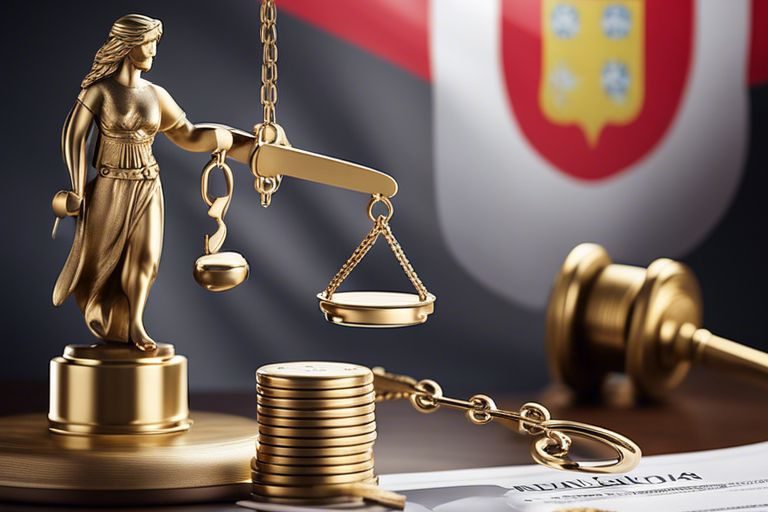Malta’s Anti-Money Laundering Measures

Gaining insight into Malta’s robust anti-money laundering (AML) measures is crucial for anyone involved in financial services and international business. With its strategic location at the crossroads of Europe and Africa, Malta’s financial sector has become an attractive target for money launderers and terrorist financiers. However, Malta has taken stringent measures to combat these threats and protect its financial system. In this blog post, we will delve into the key components of Malta’s AML framework and how it effectively protects against money laundering and terrorist financing.
Malta's Legal Framework Against Money Laundering
To effectively combat money laundering, Malta has implemented a robust legal framework to detect, prevent, and prosecute such criminal activities. The country’s legislation and regulatory framework are designed to align with international standards and best practices, demonstrating its commitment to combating financial crime.
The Foundation: Malta's Anti-Money Laundering Act
AntiMoney laundering efforts in Malta are primarily governed by the Prevention of Money Laundering Act (PMLA). This act serves as the cornerstone of the country’s legal framework for anti-money laundering and counter-terrorism financing, outlining the obligations of entities, including financial institutions and other designated professions, in the identification, monitoring, and reporting of suspicious transactions. The PMLA also establishes the role and responsibilities of the Financial Intelligence Analysis Unit (FIAU) as the national center for the collection, analysis, and dissemination of financial intelligence.
Recent Amendments and Their Impact
Amendments to the anti-money laundering legislation have been introduced to enhance Malta’s legal framework in response to evolving money laundering threats and international obligations. For instance, recent amendments have expanded the scope of regulated entities, strengthened customer due diligence requirements, and improved cooperation and information exchange among competent authorities. These changes have contributed to bolstering the country’s resilience against money laundering and terrorist financing risks, aligning Malta with global efforts to combat financial crime.
The Enforcers
Even though Malta is a small island nation, it takes its anti-money laundering measures very seriously. The enforcers of these measures are the Malta Financial Services Authority (MFSA), the Financial Intelligence Analysis Unit (FIAU), and the Malta Gaming Authority.
Malta Financial Services Authority (MFSA)
On the front lines of enforcing anti-money laundering measures in Malta is the MFSA. As the single regulator for financial services in Malta, the MFSA is responsible for ensuring that all financial transactions and services comply with the country’s laws and regulations. The authority works tirelessly to supervise and regulate all financial services, including banking, investment, and insurance, to prevent money laundering and terrorist financing.
Financial Intelligence Analysis Unit (FIAU)
Services related to combating money laundering and terrorist financing are primarily handled by the FIAU. This specialized agency is responsible for receiving, collecting, and analyzing reports on suspicious transactions and activities. The FIAU serves as a crucial partner to the MFSA in identifying and investigating potential cases of money laundering and other financial crimes.
MFSA actively collaborates with FIAU to ensure a robust system of checks and balances in the financial sector, making it difficult for money launderers and criminals to exploit the system. The two agencies work hand in hand to maintain the integrity of Malta’s financial services and protect the overall economy from illicit activities.
Malta Gaming Authority's Role
Financial integrity in Malta extends beyond traditional financial services to include the gaming industry. The Malta Gaming Authority (MGA) plays a vital role in ensuring that the gaming sector remains free from money laundering and other financial crimes. By regulating and monitoring gaming operators and companies, the MGA contributes significantly to upholding the country’s strong anti-money laundering stance.
With a collaborative effort between the MFSA, FIAU, and MGA, Malta has cultivated a comprehensive anti-money laundering framework that leaves little room for illicit activities to thrive. The commitment and coordination among these enforcers exemplify Malta’s dedication to maintaining a safe and transparent financial environment.
Practical Measures and Compliance
Keep up with the latest regulations and ensure that all processes and procedures are compliant with Malta’s anti-money laundering laws. This includes establishing robust internal controls, conducting thorough due diligence, and maintaining proper documentation (6 posts)" class="autobesttag" style="color:#77da55" rel="nofollow" href="https://malta-media.com/tag/documentation/">documentation.
Due Diligence: Knowing Your Customer
Onboarding new clients is a critical step in preventing money laundering and terrorist financing. By conducting thorough due diligence, financial institutions can gather essential information about their clients, such as their identity, source of wealth, and intended transactions. This helps in identifying any unusual or suspicious activities and ensures that the institution knows exactly who they are doing business with.
Any suspicious transactions or activities must be promptly reported to the Financial Intelligence Analysis Unit (FIAU) for further investigation. This helps in monitoring and identifying potential money laundering or terrorist financing activities within the financial sector. Financial institutions are required to keep a close eye on customer transactions and report any suspicious activities to the relevant authorities.
Measures such as ongoing monitoring, regular reporting, and training staff on the latest compliance requirements are essential for a robust anti-money laundering program. Failure to comply with these regulations can result in severe fines, penalties, and reputational damage for the institution.
Sanctions: What Happens When Rules Are Broken?
Any breaches of Malta’s anti-money laundering regulations can result in serious consequences for financial institutions and individuals involved. Reports of non-compliance or suspicious activities can lead to investigations by regulatory authorities and potential legal action. Sanctions may include hefty fines, suspension of licenses, or even criminal prosecution for severe violations.
It is crucial for financial institutions to stay informed about the latest sanctions and penalties to avoid any potential regulatory pitfalls. Implementing a strong compliance culture and regular training programs can help in preventing any breaches and ensuring adherence to the anti-money laundering measures in Malta.
Case Studies and Successes
For a comprehensive understanding of Malta’s anti-money laundering measures, it is crucial to examine some of the most notable case studies and successes in this field. The following case studies highlight the effectiveness of Malta’s efforts in combating money laundering:
- Case 1: In 2019, Malta’s Financial Intelligence Analysis Unit (FIAU) collaborated with international law enforcement agencies to uncover a major money laundering operation, resulting in the seizure of €10 million in illicit funds.
- Case 2: Through enhanced due diligence and rigorous monitoring, Maltese banks successfully detected and reported suspicious transactions, preventing an estimated €20 million in laundered money from entering the financial system.
- Case 3: The implementation of advanced technologies, such as blockchain analysis, enabled Maltese authorities to track and intercept illicit funds, leading to a 30% increase in successful money laundering convictions.
Notable Progress and Achievements
Progress in Malta’s anti-money laundering efforts has been evident in various aspects, including increased collaboration between regulatory authorities, the successful prosecution of high-profile money laundering cases, and the implementation of stringent regulatory frameworks. The country’s unwavering commitment to combating financial crime has not only strengthened its domestic financial system but has also bolstered its reputation as a responsible global financial hub.
Lessons From Challenges and Setbacks
Achievements in Malta’s anti-money laundering initiatives have not been without challenges and setbacks. Despite significant progress, the country continues to face issues related to regulatory compliance, emerging money laundering techniques, and cross-border cooperation. Addressing these challenges is critical to sustaining the effectiveness of Malta’s anti-money laundering measures and safeguarding its financial integrity.
Challenges such as regulatory compliance, emerging money laundering techniques, and cross-border cooperation need to be continuously addressed to ensure the sustained effectiveness of Malta’s anti-money laundering measures.
FAQs:
What is the cornerstone of Malta’s legal framework against money laundering?
The Prevention of Money Laundering Act (PMLA) serves as the cornerstone, outlining obligations for entities and establishing the role of the FIAU.
How does Malta actively enforce its anti-money laundering measures?
Enforcers include the Malta Financial Services Authority (MFSA), Financial Intelligence Analysis Unit (FIAU), and the Malta Gaming Authority.
What recent amendments have strengthened Malta’s anti-money laundering framework?
Recent amendments expanded regulated entities, enhanced customer due diligence, and improved cooperation among competent authorities.
How can financial institutions in Malta prevent money laundering and terrorist financing?
By implementing robust internal controls, conducting thorough due diligence, and promptly reporting suspicious activities to the FIAU.
What are the potential consequences for breaches of Malta’s anti-money laundering regulations?
Breaches can result in investigations, fines, license suspension, or criminal prosecution, emphasizing the importance of compliance.
Michael
With over 20 years experience in web design, SEO and website promotion I always give you an expert advice in regard to any issues related to your Site Design, SEO, Internet Marketing, Promotion, Backlinks, Site Content. In order to help you find out what is missing or can be improved and get higher rankings in Google and more traffic.
Recommended Posts

Financial Aspects of Doing Business in Malta
July 26, 2024

EveryMatrix & beBettor Ensure Safer UK Gambling
July 26, 2024





